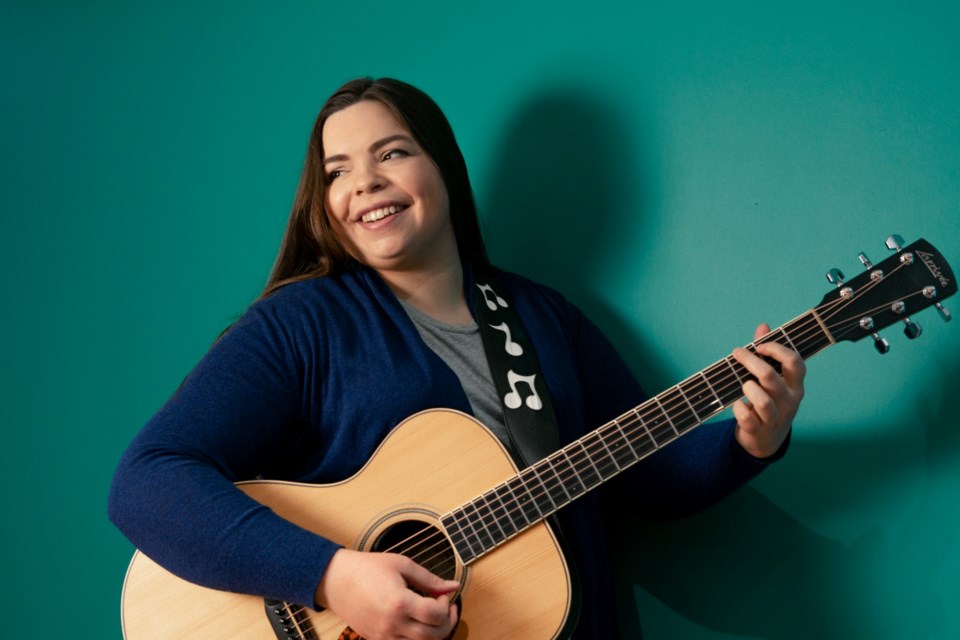It's almost a given that listening to your favourite song will cheer you up.
Take it a step further and you will understand how Kylie Klym of Sudbury has a formal music therapy practice.
She will also tell you that March is Music Therapy Awareness Month in Canada. It's something she works hard to raise awareness for. Aside from her love of music and belief in its healing powers, Klym is also a health care professional as a registered psychotherapist in Ontario.
"So, you know, I'm regulated just as much as your nurses, your social workers, even your doctors, physiotherapists, audiologists, speech-language pathologists; they're all regulated professions in Ontario. So to be included in that college definitely solidifies the professional acceptance," said Klym.
Klym said music is one of those intangible things that holds special meanings for everyone.
"Because we can mark a lot of moments in our life using music. Whether, you know, it's a song that a mom has sung for her child, and that child will remember that particular song and carry it through into adult life. You know the first dance songs at weddings, you know, songs playing in the car when individuals first learning to drive or at those school dances, so those songs stay with us through our lives," she said.
Klym added that it's not always the melody that people remember, but often the lyrics will give people the words they need to express in a difficult situation. She said familiar lyrics are often enough to move a difficult discussion forward.
Putting aside another misconception, Klym said not all psychotherapists work with people who are in crisis or experiencing some sort of breakdown.
Klym said much of her work is helping people with neurologic conditions or traumatic brain injuries. Music can help a patient redevelop skills after having a stroke. It can help a patient increase the range of motion in one of their limbs if they were paralyzed.
She added music that has a common beat (such as 2/4 time or 4/4 time) can actually help some people, such as those with Parkinson's Disease, walk more steadily or feel more comfortable when walking.
She said her work can be satisfying, and even inspiring when a breakthrough is made with a client.
"I'm very inspired by my work in Alzheimer's and dementia care. Because that is a very challenging diagnosis. And we still don't know a lot of the answers," said Klym.
She said she is pleased when she can help a client unlock old and familiar memories by using music that was part of their lives, music that they listened to during happy occasions, or even when they were cooking or being with people around the house. She mentioned that some older clients, some who are Baby Boomers, were pleased a couple of years ago with the resurgence of the music of Vera Lynn, who passed away in June 2020. Lynn was a popular singer from the Second World War who sang such hits as “We'll Meet Again” and “(There'll Be Bluebirds Over) The White Cliffs of Dover”.
Klym said there are many types of music that people associate with feeling better even though she might not necessarily be a fan of some songs.
"So when I was in university, Party In The USA was really big. I was never a Hannah Montana fan, but I was doing a placement with a high school and that's what they wanted to work with. So that, you know, is our goal; to work with the client," said Klym.
"I'm very open. I myself listen to a wide range of music and can find appreciation in a lot of music, even if it's something I may not traditionally have playing at home," Klym said. The one singer she said she really enjoys is Grammy winner and Oscar winner Lady Gaga.
Klym added that in her work she has also learned there are other important elements to music.
"So it's very important to use the music of an individual's culture. Or, you know, culture, religion and language," said Klym.
During one of her work placements at a nursing home, she even learned to sing songs in Yiddish, a language linked to Central European Jews.
"And then being based in Sudbury. Naturally, there has been both French and English music. And even just recognizing a place for indigenous or First Nations music as well," she said.
Len Gillis is a Local Journalism Initiative reporter at Sudbury.com, covering health care in Northern Ontario. The Local Journalism Initiative is made possible with funding from the federal government.

.jpg;w=120;h=80;mode=crop)

